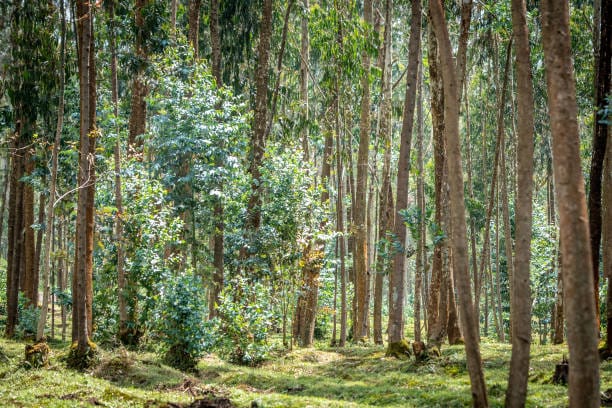Kigali, Rwanda (TAE)– Rwanda’s environmental preservation efforts took a significant leap forward this week as the lower house of parliament passed a groundbreaking bill aimed at strengthening the protection of the country’s forests. The new legislation introduces stricter regulations on tree cutting, including the requirement for Rwandans to secure permits from authorities for cutting any trees, even those planted on private property.
The bill is a comprehensive measure that not only forbids the harvesting, use, and trade of immature trees but also proposes severe penalties for violations. Individuals found cutting trees before they mature or without a proper license could face fines of up to 3 million Rwandan francs (approximately $2,300 or £1,800). This move is part of a broader initiative to preserve the environment and mitigate the effects of climate change.
According to statements made by the lower house of parliament, the enactment of this law underscores Rwanda’s commitment to environmental conservation. “This law aims to further preserve the environment and prevent the effects of climate change,” the parliament announced, reflecting the government’s dedication to sustainability.
Furthermore, the legislation aligns with Rwanda’s ambitions to capitalize on carbon credit sales, a plan that has been in the works as reported last year by the pro-government New Times website, citing Environment Minister Jeanne d’Arc Mujawamariya. Carbon credits are a key component of international efforts to reduce greenhouse gas emissions, and this bill positions Rwanda as a proactive participant in the global climate response.
Despite the environmental benefits, the proposed law has not been universally welcomed. A segment of the Rwandan population views it as a hindrance, potentially complicating access to wood for essential needs such as cooking and construction. The debate reflects a broader challenge faced by countries worldwide as they seek to balance environmental conservation with economic and social needs.
Rwanda’s dedication to tree conservation is evident in the significant increase in forest cover over the past decade. The country’s forest area has grown from 10.7% in 2010 to 30.4% in 2022, a testament to its successful environmental policies, according to data from the environment ministry.
As the bill now moves to the upper house of parliament for further debate and approval, the international community watches closely. Rwanda’s steps towards stricter environmental regulation may serve as a model for other nations looking to combat climate change while facing the complexities of development and conservation.


